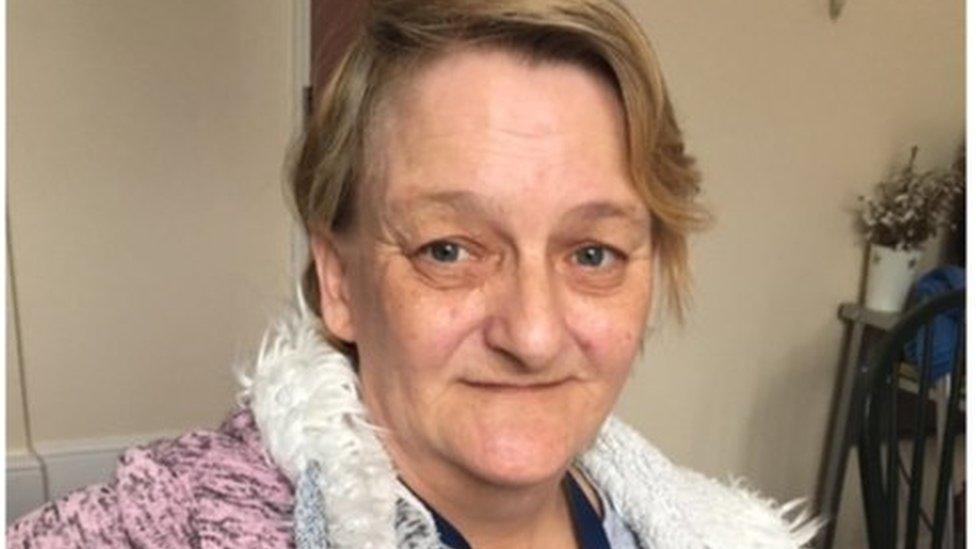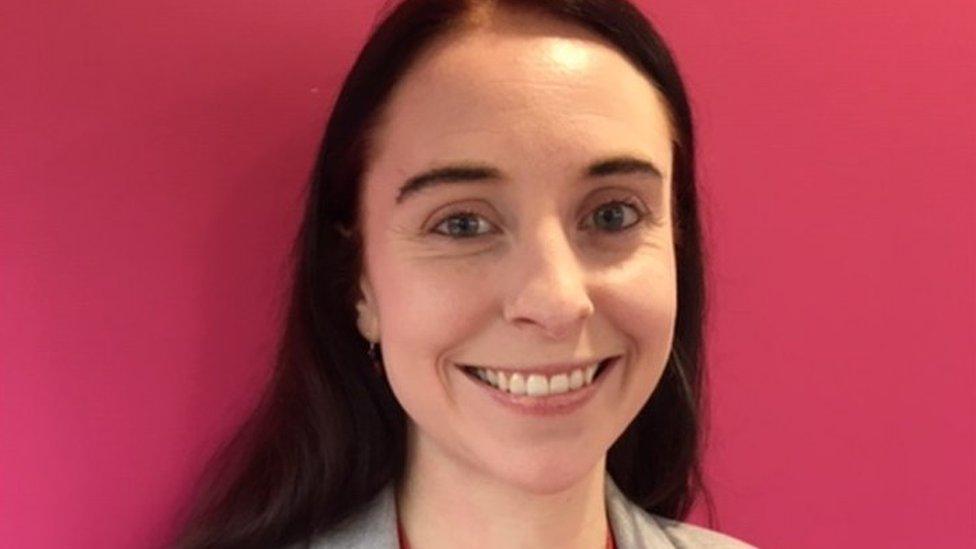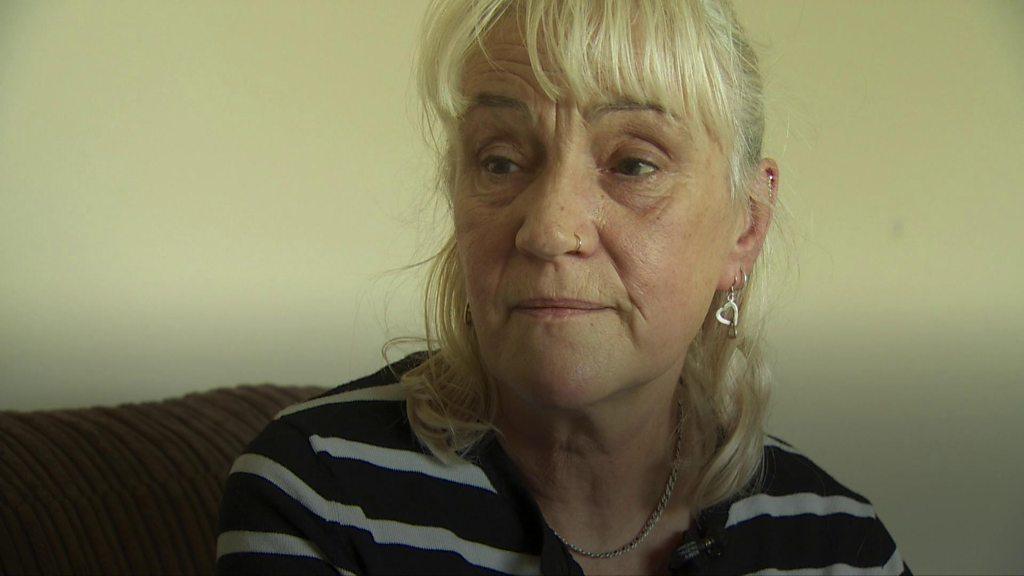Alcohol-related brain damage: 'I was paid in lager to babysit'
- Published

Maria Chilvers used to drink more than 20 cans a day
A woman who was paid in lager to babysit as a teenager went on to develop alcohol-related brain damage (ARBD) following 20 years of drinking.
Mother-of-four Maria Chilvers said a series of family bereavements caused her drinking to get out of hand.
The 48-year-old, from Haverfordwest in Pembrokeshire, could at one point drink more than 20 cans a day.
The number of people admitted to hospitals in Wales with ARBD has risen by 20% over 10 years.
A University of South Wales report also showed a 24.8% increase in the number of patients diagnosed with ARBD over five years - from 387 admissions in 2013-2014 to 551 in 2017-2018.
“When I was about 14 or 15, I’d babysit regularly and sometimes I would get paid in alcohol. Four or five cans at a time," she said.
"My mum and sister would go shopping and they would end up in the pub for hours.
“After my grandmother died, the drinking gradually got worse to the point where I would wake up in the morning and not even bother to put the kettle on, I’d just grab a drink.
"I’ve lost count of the amount of cans I was drinking a day – more than 20 cans a day easily.”
Maria realised she needed help when her older sister was diagnosed with cancer caused by alcohol.
After more than 20 years of drinking, Maria was diagnosed with ARBD.
It is an umbrella term which refers to a set of cognitive impairments caused by heavy drinking.
“It’s a lot of different conditions but the main effects are on what we call the cognitive of the brain so your memory, your ability to make decisions, your abstract thinking, those are the areas that get damaged," said Dr Julia Lewis, consultant addictions psychiatrist at Aneurin Bevan University Health Board.
While the number of people admitted to hospitals has increased, exact figures for the number of people with the condition are difficult to find.

Rebecca Ward said one of the biggest challenges was to know how big the issue is
The University of South Wales study found many people with ARBD go undiagnosed.
Rebecca Ward, senior researcher at the university, said it was often confused with other problems.
“One of the biggest challenges is to know how big the issue is because a lot of people are currently misdiagnosed or underdiagnosed,” she said.
“Research from Scotland suggests around 12% of early onset dementia cases might be forms of ABRD.”
If identified early enough, alcohol-related brain damage can be reversed, unlike dementia which is a progressive condition.
Up to 75% of people diagnosed with brain damage caused by alcohol can see some recovery with the correct treatment and support.
It is hoped a new treatment framework plan to be published by the Welsh Government will improve awareness of the condition across all sectors.
Andrew Misell, director for Wales with Alcohol Change UK, said the introduction of a minimum unit price for alcohol earlier this month was helping heavy drinkers reduce the amount they drink.
He added: “I’m hearing from drinkers I know who drink white cider that they have bought a smaller bottle, or one fewer bottles.
"All the evidence is that putting up prices drives down consumption.”
Maria was referred to the only specialist treatment centre for alcohol-related brain damage - Brynawel House Drug and Alcohol Rehabilitation Centre, near Llanharan, Rhondda Cynon Taff – where she spent seven months.
Her treatment included intensive cognitive behavioural therapy and regular injections of vitamin B1 – also known as thiamine – which is essential for brain function and can be deficient in people who drink a lot of alcohol.
She is now living in supported accommodation and hopes to move into her own home soon. She is looking forward to the future with her partner and four daughters, two of whom are at university.
“My future is bright I hope,” she said.
“My sister died of cancer before Christmas and I could quite easily have turned back to the drink, but I refuse to let it beat me. I’m not going to let it beat me, I’m in control. It’s not in control of me anymore.”
You can hear more on this story on BBC Radio Wales' Eye On Wales programme, 18:30 GMT, Wednesday, 18 March.
- Published31 July 2019

- Published26 November 2019
